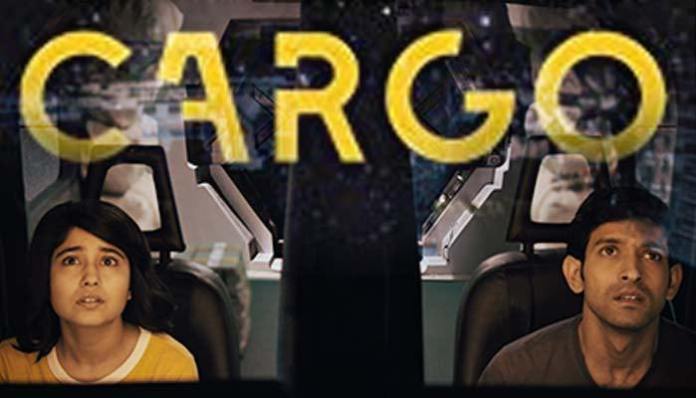If I Had to sum up ‘Rocky Aur Rani Kii Prem Kahaani’ in a single sentence, it would be – This is the least ‘Karan Johar-ish’ film, yet the most ‘Karan Johar-ish’ film that the filmmaker has ever made. Read on to know why.
Set in the milieu of affluent Delhi,
Rocky Aur Rani Kii Prem Kahaani (RARKPK), is the quintessential Bollywood love
story between an over-the-top Gucci-wearing Punjabi boy, Rocky Randhawa
(Ranveer Singh) and a feisty, intelligent TV anchor, Rani Chatterjee (Alia
Bhatt). Expectedly, opposites attract and the two fall in love, at which point
their completely contrasting families enter the picture. Rocky belongs to a
hugely successful business family, whose tough matriarch, Dhanalakshmi Randhawa
(Jaya Bachchan) keeps a tight hold on both her family and the business. The
Randhawas are the uber-rich Punjabis of Delhi that we have all heard tales
about – palatial mansion, jazzy cars and an overbearing sense of ‘sanskaar’.
The Chatterjees, diametrically opposite to the Randhawas, are the intellectual
elite of Delhi. Their house has a painting of Tagore, walls lined with books
and discuss election voter turnout over morning tea. The father is a
Kathak dancer and mother is a senior English Professor in Delhi University (and
as Rani calls her – is the Shashi Tharoor of the house). As fate would have it,
the past of the elderly in both the houses – Kanwal Lund/Randhawa (Dharmender),
Dhanlakshmi Randhawa (Jaya Bachchan) and Jamini Chatterjee (Shabana Azmi) – get
intertwined forming the base of the love story. To convince their families, Rocky
and Rani switch homes to live with the others family. This is where the film
scratches more than the surface and touches upon a lot of issues that either
side of the families had buried for long. On the periphery, RARKPK is return of
Bollywood and Karan Johar to their mainstay – a romantic comedy peppered with family
drama. But there is more than what meets the eye.
I started off by calling this movie the least ‘Karan Johar-ish’ film ever. That is because, unlike the usual perception of his movies, this one is not superficial or just candy-floss drama with pretty faces and handsome men flaunting their torsos. The writing by Shashank Khaitan, Ishita Moitra and Sumit Roy brings in layers to the otherwise regular ‘Bollywood Masala’ caper. They touch upon misogyny in our households, delve into compromises that couples make to keep a marriage intact, try to challenge gender roles and play heavily on human emotions. There are some beautiful moments that both the leads get with their families, that make this movie connect with its viewers. On the other hand, it continues to be a typical ‘Karan Johar-ish’ flick – there are massive sets, grandeur in every detail, beautiful faces and gorgeous leads looking their finest best – not even a hair out of its place! Also, like most his films, RARKPK continues to be honest and truthful to its ‘Bollywood Masala’ quotient – numerous nostalgic songs, dialogue references to some of the director’s work from the 2000s and over-the-top ‘naach-gaana’. When Kanwal sings ‘Abhi Naa Jao Chhodkar’, even an octogenarian Dharmender looks charming as ever. Only a true-blue Bollywood fanatic like Johar can make that happen!
The performances are all quite good,
especially the actors who played the Chatterjee parents – Tota Roy Chowdhury and
Churni Ganguly, who play an intellectual Bengali couple and get to display a wide
range of emotions. Their scenes with Ranveer Singh after a Kathak performance
and lingerie shopping sequences, respectively, are deeply affecting. Complementing
perfectly in both these scenes and in all of the movie is Ranveer Singh. Playing
his natural self- in bright, outlandish clothes- Ranveer is perfectly cast as
the livewire Rocky Randhawa. Be it the Punjabi accent or the dance moves or the
emotional scenes, Singh is brilliant. Matching his energy is the calmer, yet
powerful performance by Alia Bhatt as Rani Chatterjee. She is fierce, strong
and unabashed – right from her introduction scene where she ticks off a
politician to her numerous face-offs with the Randhawas. Alia Bhatt does not
let her petite frame come in the way of the feistiness that her character
demands. Among the veterans, Jaya Bachchan – making a return to the large
screen after a hiatus- is very good both in her dialect and performance. I wish her character had a better arc, since it gets an unconvincing end. Multiple
National Award-winning actress, Shabana Azmi, delivers her roles well. Dharmender,
at 88, is mostly mellow but deserves an applause for still trying to charm his
leading ladies and the viewers alike.
RARKPK does come with its flaws.
The writing falters post the interval, where some of the issues with the family
members seem contrived. Some of the sub-plots such as the one involving Rocky’s
sister, Gayatri, or his mother, Poonam, seem forced and not add much to the
plot. The climax also seems rushed, as if the makers suddenly became mindful of
the duration and decided to speed up. But all said and done, the movie does
have some beautiful moments and a typical Bollywood love story at its core.
One of Johar’s most loved directorial,
‘Kabhi Khushi Kabhi Gham’ (2001) had a tagline – It’s all about loving your
Parents. RARKPK, 22 years later, appears to be Johars adaptation to today’s day
& age and should come with a tagline – It’s all about loving your parents,
albeit with some rebellion!
My Rating – 3.5/5



